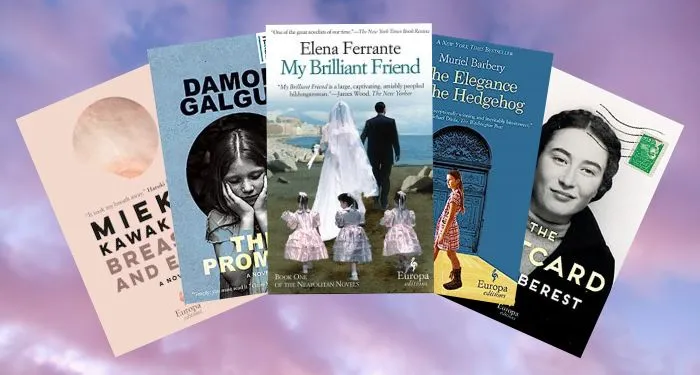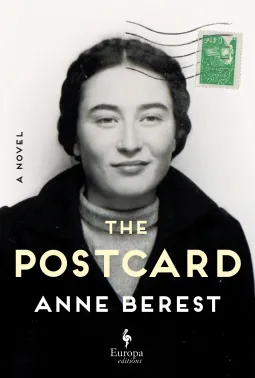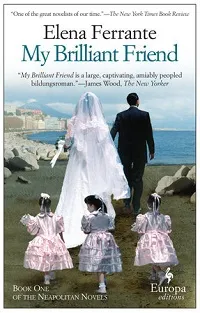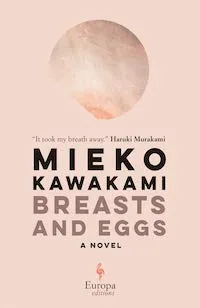
Europa Editions and Literature as a Bridge
If you’ve read anything from Elena Ferrante, the beloved Italian author behind My Brilliant Friend (translated by Ann Goldstein) of the Neapolitan Novels, then you’ve encountered independent publisher Europa Editions. Since Europa opened its doors in 2005, it has since made Ferrante a household name; not only are there the four books of the Neapolitan novels but also a television show, a six-hour play, and a forthcoming graphic novel. Other books have met success such as New York Times bestseller The Elegance of the Hedgehog by Muriel Barbery, translated by Alison Anderson. Multiple Europa titles have been nominated for the Booker Prize, including the recent win in 2021 for Damon Galgut’s The Promise.
We’re going to dive into the history and great work of this small but mighty independent publisher. I was quite fortunate to have the opportunity to interview Michael Reynolds, Editor-in-Chief of Europa.
Origin Story
Ferrante played a pivotal role in the founding of the publisher. Reynolds said, “Ferrante is part of Europa’s DNA.” Europa Edition Founders and owners and founders of Italian publisher Edizioni E/O, Sandro Ferri and Sandra Ozzola Ferri spent years unsuccessfully trying to sell translation rights to American publishers for Ferrante’s work. Those rejections were one of the reasons that they decided that they would publish Ferrante’s work in English themselves, Reynolds recalled. Europa released its first book, The Days of Abandonment by Ferrante, translated by Goldstein, in 2005.
In a 2022 interview with Lit Hub, Reynolds said that people told Ferri and Ozzola that they were crazy to start Europa because “Americans won’t read books in translation; critics won’t take trade paperback originals seriously; life is too hard for independent publishers in this age of publisher mergers and conglomeration. Over the years I’ve learned there is very little that motivates Sandro and Sandra more than being told something that they think is a good idea will never work or can’t be done.” Needless to say, the rest is history.
Literature as a Bridge
The aim of Europa Editions is “to bring fresh international voices to the American and British markets and to provide quality editions that have a distinct look and consistently high levels of editorial standards,” according to the Europa website. Reynolds related that their French writers take a look at Europa’s French books and say, “You’re kind of all over the map. There’s quite commercial stuff here. There’s crime, there’s memoir; there’s very literary work. What is it you do? What’s your idea behind this?”
For Reynolds, he explained that “what we’re looking for is to have our books serve as a bridge between readerships and a bridge between people and thinking that if different people in different readerships are sort of sharing the same story in different countries, or different cultures, then we’re doing what we set out to do, which was in some way to connect those people. When it works, it’s really powerful.”
A few years ago, a reader told Reynolds at a book festival about how they were backpacking through Vietnam and reading Ferrante on the bus. Across from the reader was a Vietnamese lady also reading Ferrante. Even though they didn’t share a language, the reader explained, “ We were holding our books out across the aisle of this bus in the middle of the countryside and that’s magic, right?”
He noted that Europa does not shy away from translating popular books in other countries for U.S. audiences. “Some of the authors that we are publishing are considered to be quite commercial [in their markets]. All of those books are good, and the stories are great, and we can make sure that we’re presenting these books in an attractive way and a good translation and we know how to talk about what those books have meant back in their native countries or their home markets,” Reynolds said.
But they don’t just publish commercially successful texts in non-English speaking countries, they publish books that they really believe in. And even if a book is likely a bestseller but they hate it, they don’t have the pressure to publish it. Honestly, as a reader, I find that a Europa-published book is a mark of success.
Not a Genre
One important thing about Europa is that they are not just publishing books in translation. They’ve also published works from English-speaking parts of the world. For Reynolds, translation is “not a genre in itself. It’s a technical characteristic of a book.”
But they do take translation seriously. Reynolds said that he thinks they are the only American publishing house that has an extra editorial step with translation: the first edit of the translation is reviewed by a bilingual editor to make sure that the tone and register are correct. “It’s an investment that we make in order to ensure that the translations are good, but it’s also an investment in the translator,” he said.
Beyond Europe
With the incredible success of Ferrante’s works, Europa had a choice to make. Reynolds explained that they could keep looking for another Ferrante. Or they could get out of their comfort zone and look at other parts of the world, notably Asia and Africa if they wanted to continue connecting readerships. There’s literature that is happening in the countries of those continues that are compelling and interesting, he explained. At the same time, they also decided to expand into nonfiction as well.
A few notable books include works of Japanese writer, Mieko Kawakami, including All the Lovers in the Night and Breasts and Eggs, translated by Sam Bett and David Boyd. In 2021, South African novelist Damon Galgut’s The Promise won the Booker Prize.
The Future
As for the future of publishing, Reynolds sees both bad and good. He called the larger publishing houses “skittish” as fewer houses are not risk-taking and are instead playing it safe. It’s not the fault of the editors who are very passionate about their books but rather publishing houses being beholden to shareholders. “As an industry, we always need to be taking chances, even if that means encouraging other people’s ire or risking the bank or company. You need to take those chances otherwise, it’s not much of an industry,” Reynolds said.
However, he’s quite hopeful about independent publishing right now. “There’s so many healthy, interesting, exciting, independent publishers right now,” Reynolds explained. He pointed to the success of indie books like The Covenant of Water by Abraham Verghese, which is still on the NYT bestseller list. Europa has obviously seen success with Ferrante as well as books like the recently published The Postcard by Anne Berest translated by Tina Kover.
Europa may publish about 40 books a year but they are extraordinary books, even if some slip by unnoticed, which Reynolds noted breaks their heart. But anyone, he says, can dip into their list with something that “everyone is that Europa is very happy and very proud of. We feel that we’re maintaining a level of quality that allows readers and booksellers and critics to really trust what we’re doing.”

As a reader, I’m excited that The Postcard is getting the critical and popular attention it deserves. I can’t wait for folks to read the forthcoming Kids Run the Show by Delphine de Vigan, translated by Alison Anderson (11/28/2023), which is a scathing criticism about privacy, social media, and parental rights.
The other work that haunted me is The Bridesman by Savyon Liebrecht translated by Gilah Kahn-Hoffmann, (12/5/2023) which is about a man returning to meet his aunt after many years who has transformed from an orphan girl ridiculed by his family to a fashionable wealthy woman who has come into her own. But honestly, you can start with any Europa book and it will open new worlds and horizons for you.
Want more books in translation? Check out this list of 24 Must-Read 2022 Books in Translation. And want more books like Elena Ferrante? Check out this list of 10 books to read after you finish the Neapolitan Novels.













